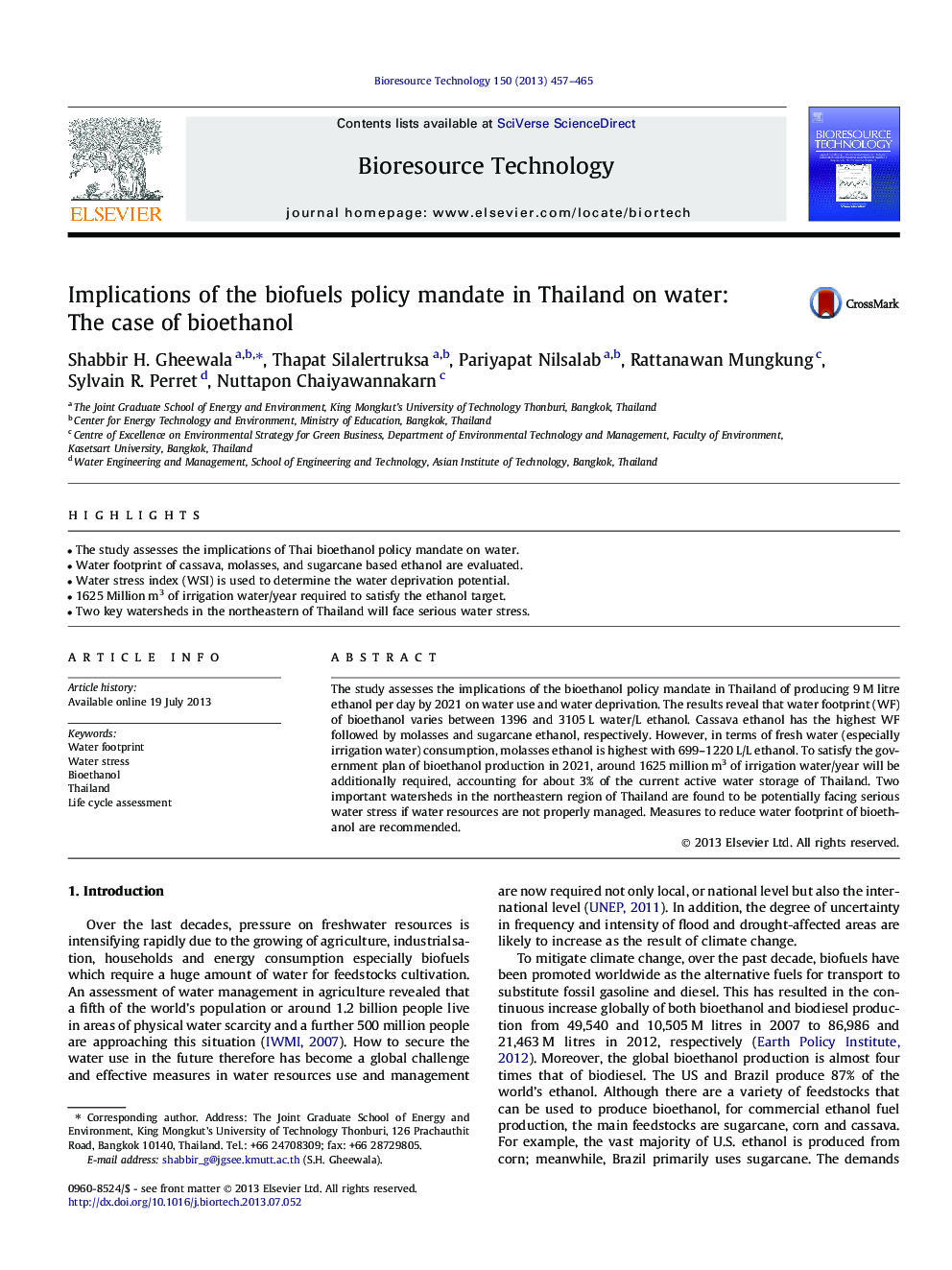| کد مقاله | کد نشریه | سال انتشار | مقاله انگلیسی | نسخه تمام متن |
|---|---|---|---|---|
| 7079647 | 1459993 | 2013 | 9 صفحه PDF | دانلود رایگان |
عنوان انگلیسی مقاله ISI
Implications of the biofuels policy mandate in Thailand on water: The case of bioethanol
ترجمه فارسی عنوان
تاثیرات سیاست های سوخت های زیستی در تایلند بر روی آب: مورد بیوتکنول
دانلود مقاله + سفارش ترجمه
دانلود مقاله ISI انگلیسی
رایگان برای ایرانیان
کلمات کلیدی
رد پای آب تنش آبی، بیوتکنول، تایلند، ارزیابی چرخه حیات،
موضوعات مرتبط
مهندسی و علوم پایه
مهندسی شیمی
تکنولوژی و شیمی فرآیندی
چکیده انگلیسی
The study assesses the implications of the bioethanol policy mandate in Thailand of producing 9 M litre ethanol per day by 2021 on water use and water deprivation. The results reveal that water footprint (WF) of bioethanol varies between 1396 and 3105 L water/L ethanol. Cassava ethanol has the highest WF followed by molasses and sugarcane ethanol, respectively. However, in terms of fresh water (especially irrigation water) consumption, molasses ethanol is highest with 699-1220 L/L ethanol. To satisfy the government plan of bioethanol production in 2021, around 1625 million m3 of irrigation water/year will be additionally required, accounting for about 3% of the current active water storage of Thailand. Two important watersheds in the northeastern region of Thailand are found to be potentially facing serious water stress if water resources are not properly managed. Measures to reduce water footprint of bioethanol are recommended.
ناشر
Database: Elsevier - ScienceDirect (ساینس دایرکت)
Journal: Bioresource Technology - Volume 150, December 2013, Pages 457-465
Journal: Bioresource Technology - Volume 150, December 2013, Pages 457-465
نویسندگان
Shabbir H. Gheewala, Thapat Silalertruksa, Pariyapat Nilsalab, Rattanawan Mungkung, Sylvain R. Perret, Nuttapon Chaiyawannakarn,
